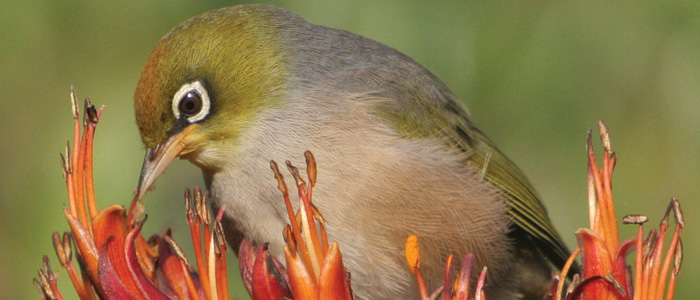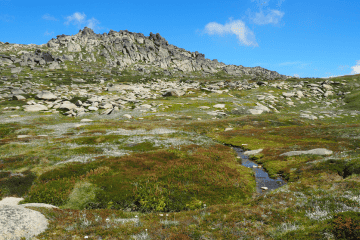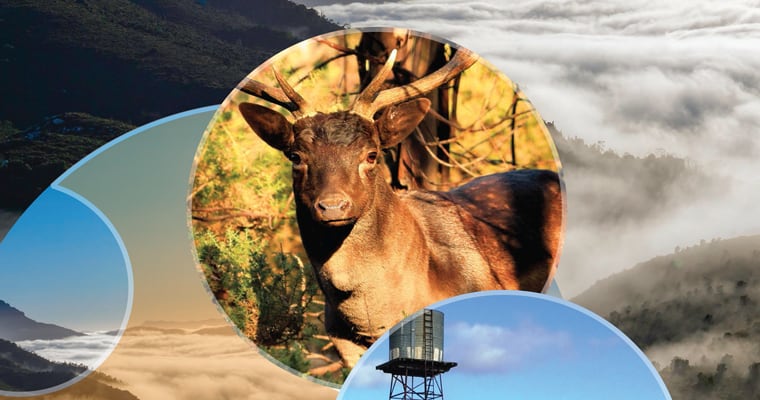
The way feral animals and weeds are being managed in NSW is set for an overhaul and there’s a chance for you to help make sure the environment isn’t forgotten.
The overhaul will come into force halfway through 2017 through a new Biosecurity Act, which will govern how NSW deals with weeds, feral animals and other pests and diseases.
It will replace ten existing acts, including the Noxious Weeds Act, the Non-Indigenous Animals Act and the part of the Local Lands Services Act that deals with feral animals.
How to have your say
The NSW Government is holding a number of free evening information sessions throughout November, you can also make comments on the draft regulations and the discussion paper on recreation in natural areas.
Submissions can be emailed to submissions.biosecuritylegislation@dpi.nsw.gov.au. Comments close on Sunday 29 January 2017.
[toggle title_open=”How to have your say >>” title_closed=”How to have your say >>” hide=”yes” border=”yes” style=”default” excerpt_length=”0″ read_more_text=”Read More” read_less_text=”Read Less” include_excerpt_html=”no”]
1. Comment on the discussion paper on recreation in natural areas>>
2. Comment on the draft regulations >>
Some points you could make include:
- Support a strong education and compliance program to implement the general biosecurity duty.
- Include more specific measures for environmental invasive species such as greater use of biosecurity zones, eg for Lord Howe Island, and mandatory measures for pest species and high risk pets.
- Support the recommendations of the Natural Resources Commission pest animal review.
- Adopt a more preventative approach for weeds, ensuring that medium and high risk weeds yet to establish in a region or the state cannot be sold or moved.
Note: You can email your submission to submissions.biosecuritylegislation@dpi.nsw.gov.au. Comments close on Sunday 29 January 2017.
3. Attend the free evening information sessions at:
- Armidale – Monday 14 November
- Coffs Harbour – Wednesday 16 November
- Goulburn – Thursday 17 November
- Orange – Monday 21 November
- Penrith – Thursday 24 November
- Dubbo – Monday 28 November
- Albury – Wednesday 30 November
[/toggle]
New regulations for the Biosecurity Act
While the Act cannot be changed, the regulations that describe the detailed operation of the Biosecurity Act are now in draft form and open for comment. Most of the regulations relate to measures protecting agricultural industries like controlling the spread of cattle tick, Newcastle disease, tomato yellow leaf curl, banana freckle and fruit fly.
The new act will rely on broader community and land owner action rather than sets of rules and government action. Many rules in law will be replaced by a ‘general biosecurity duty’. Anybody dealing with biosecurity risks has a duty to ensure the risk is prevented, eliminated or minimised ‘as far as is reasonably practicable’.
This has great potential if supported by education and compliance, otherwise it will lead to confusion, little action and the spread of invasive species by people who don’t take enough care.
What about weeds?
Weeds will be managed entirely differently. There will no longer be statewide and local government listings of weeds under different classes. Instead there will be a statewide list of ‘prohibited matter’ supported by regional strategic management plans that list specific measures for particular weeds. These plans are currently being developed by regional weed committees and their regional local land services board.
We have been concerned that weed management is far from preventative. The new arrangements are likely to focus on smaller lists of well-known weeds. The proposed statewide ‘prohibited’ list will only contain 27 weeds (down from 34), most being the official weeds of national significance. There will be a heavily reliance on regional plans that are expected to have far fewer weeds listed for active control and restrictions on sale.
We are pleased to see special ‘biosecurity zones’ for bitou bush, water hyacinth and alligator weeds. We strongly recommend this approach be applied to a greater number of environmental weeds. A zone for Lord Howe Island would help prevent invasion of new weeds and pests, some of which have already been eradicated. There are ‘mandatory measures’ proposed to control the spread of seven invasive ants and parthenium weed.
Feral animals
Initially it was proposed to do away with control orders for feral animals and instead rely on the general biosecurity duty, but the recently completed pest management review by the Natural Resources Commission means the final decision will be made early in 2017 once the government considers the review. This decision will also determine whether deer are declared as a pest animal and whether exotic but potentially invasive pet birds, aquarium fish, lizards and other animals like ferrets should be better controlled.
Recreation in natural areas
The new ‘general biosecurity duty’ is a chance to encourage better behaviour for visitors to bushland areas.
To explain how this may work and to seek feedback, we worked with the NSW Government to develop a discussion paper called Recreation in Natural Areas. The paper aims to develop best practice so that all bush visitors help limit the spread of weeds and diseases through their clothing and gear.
More info









